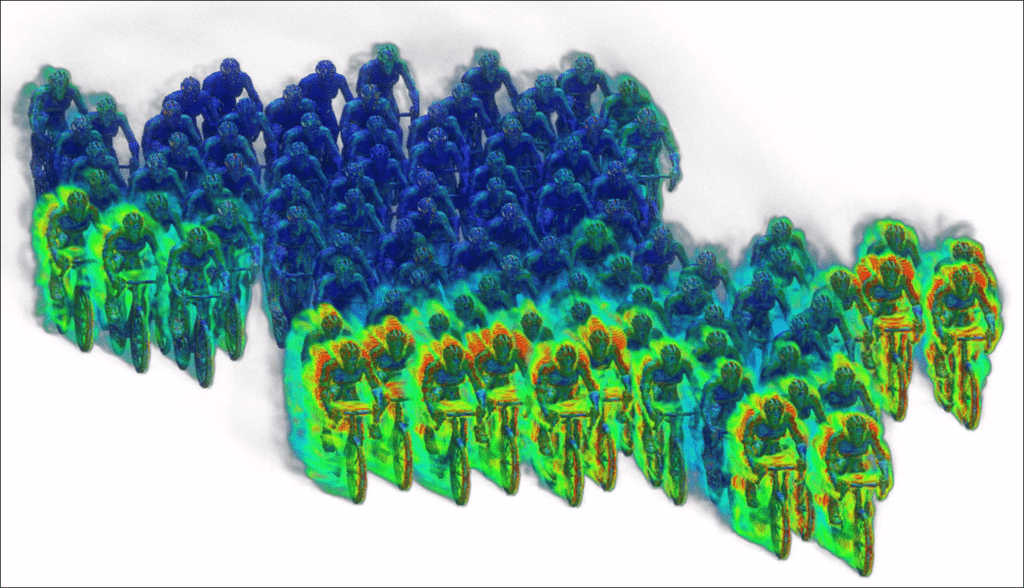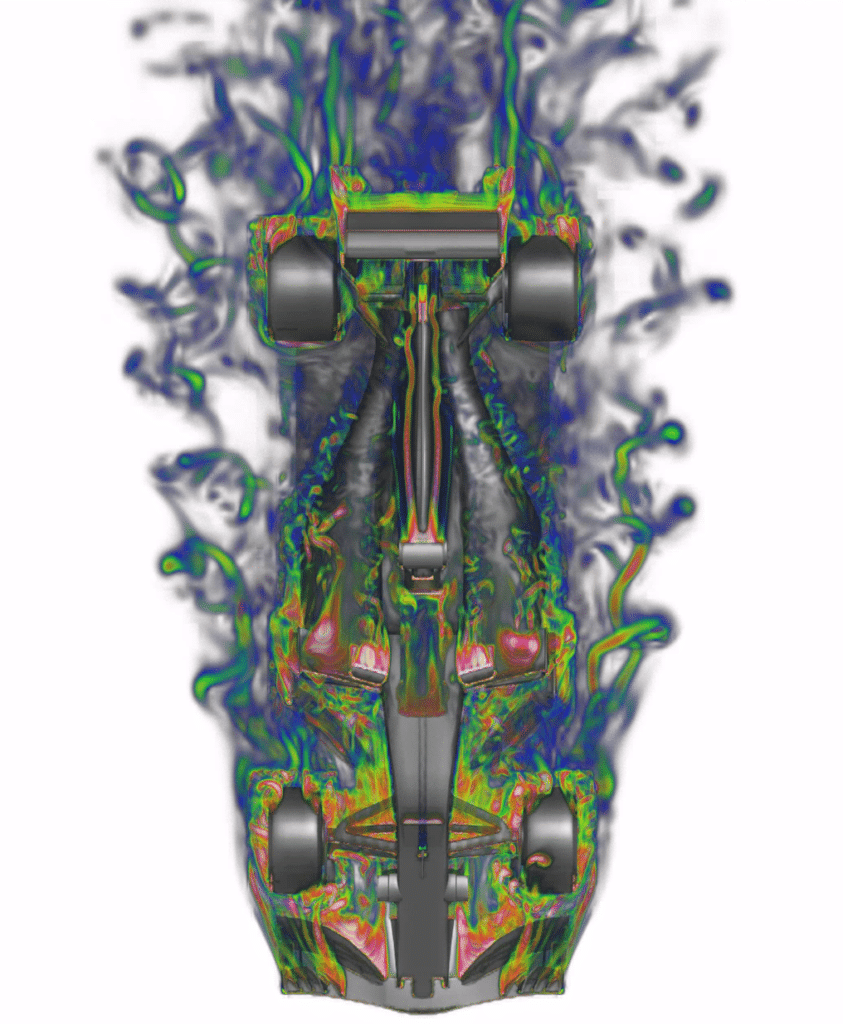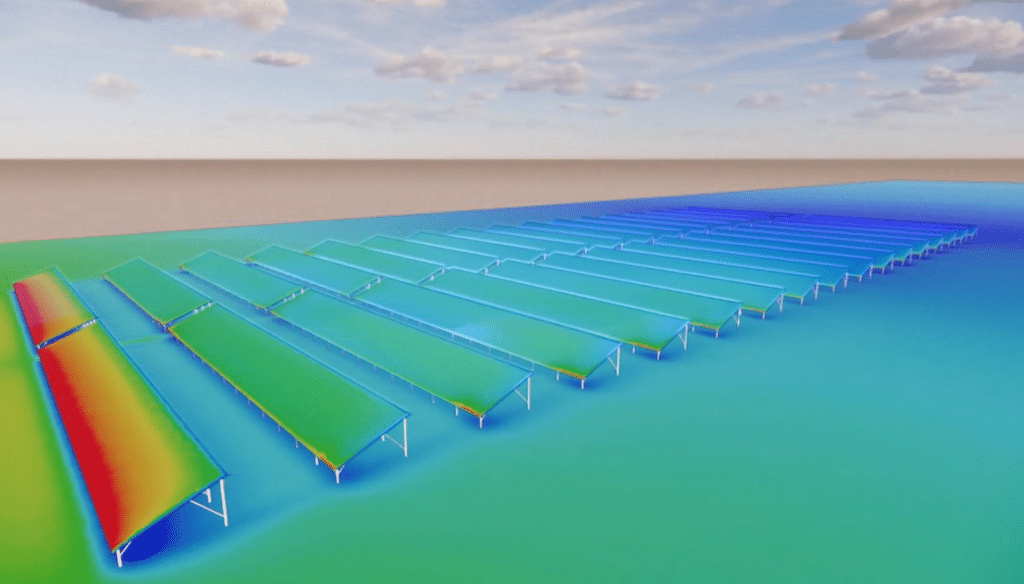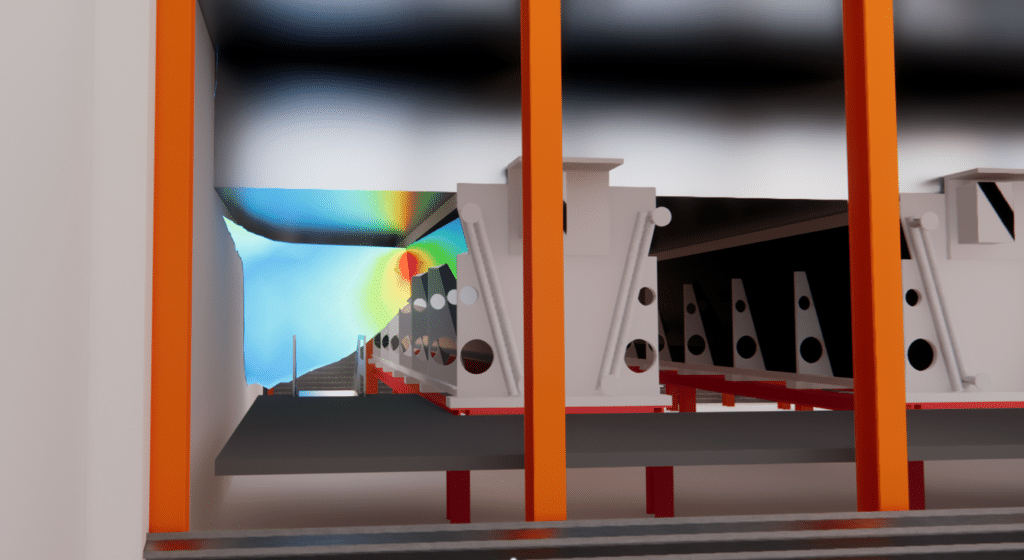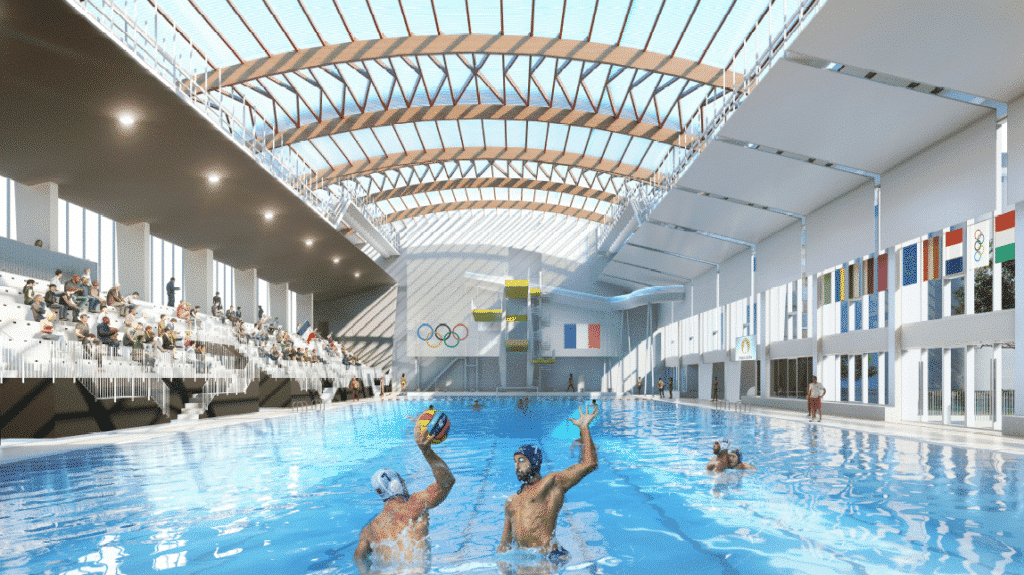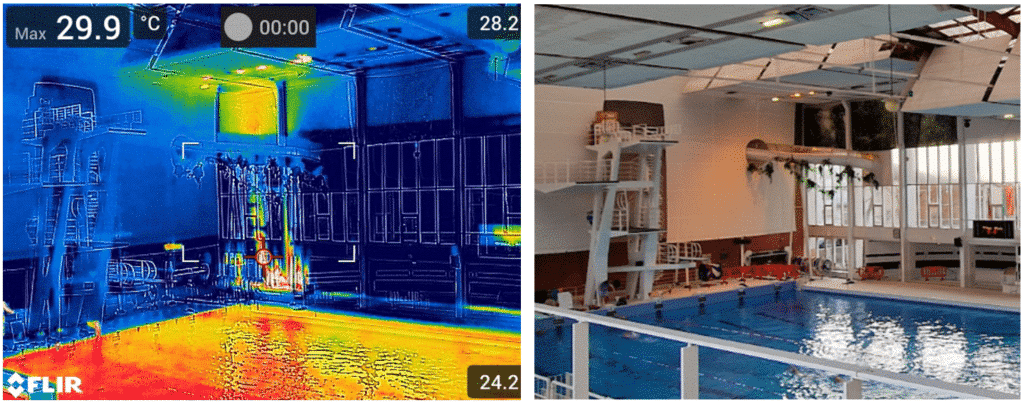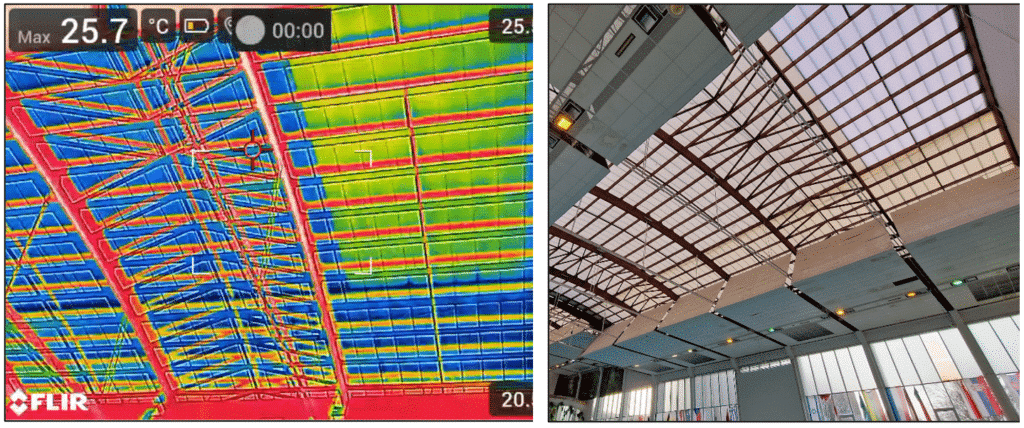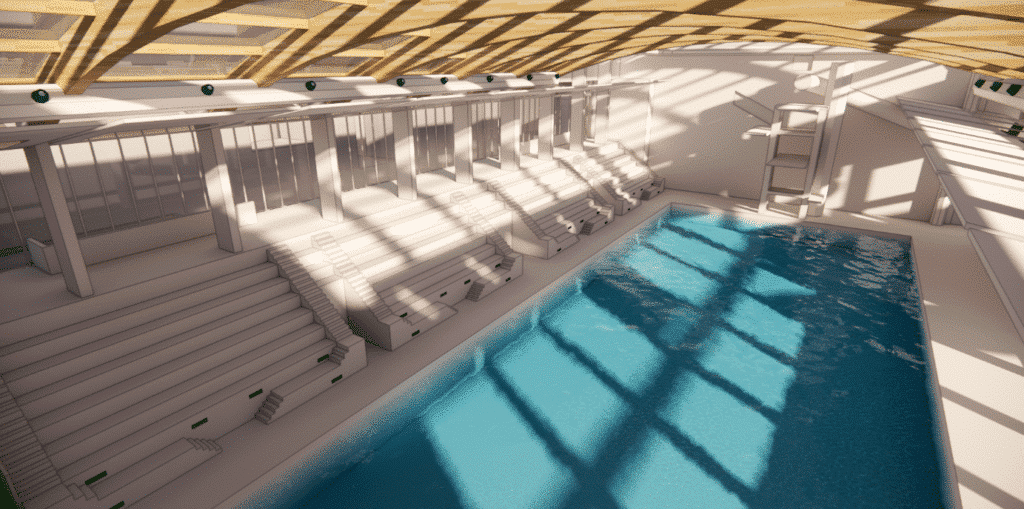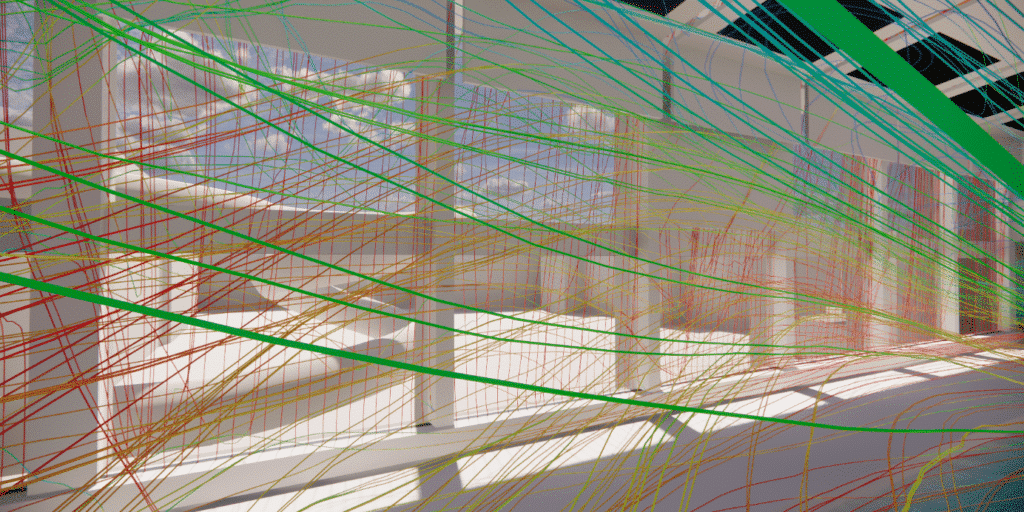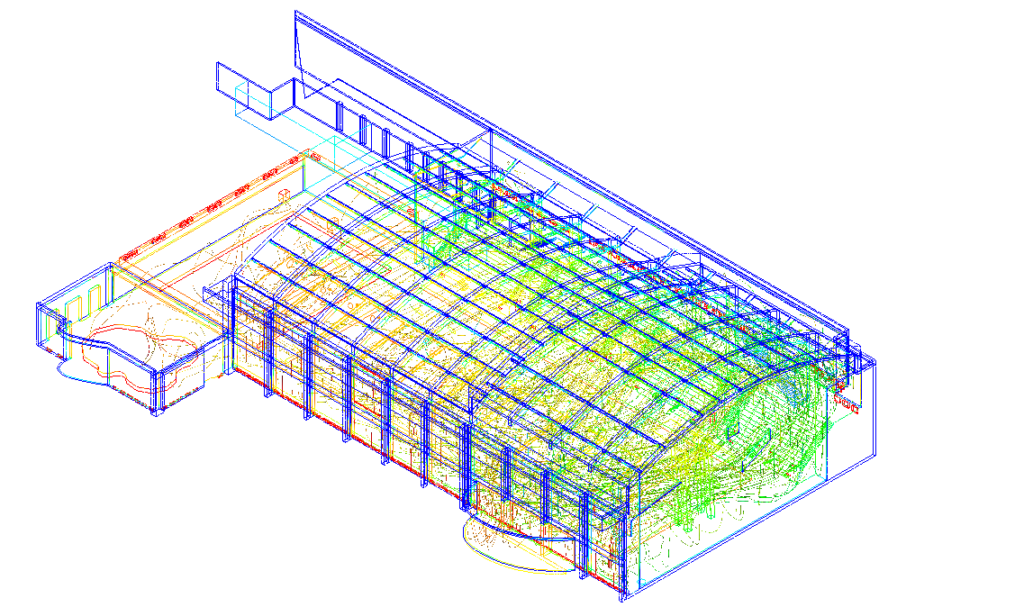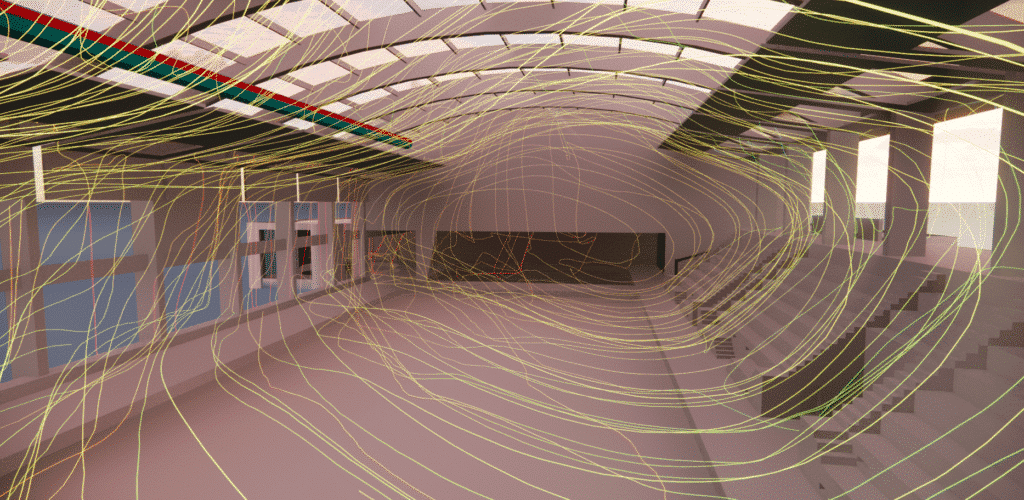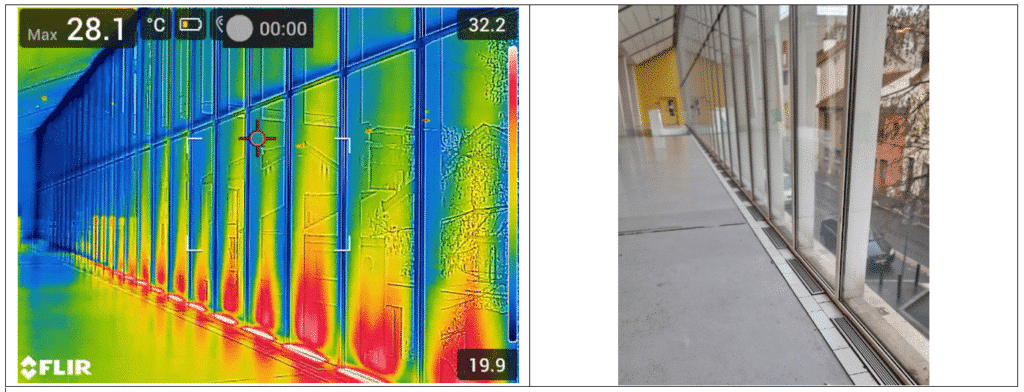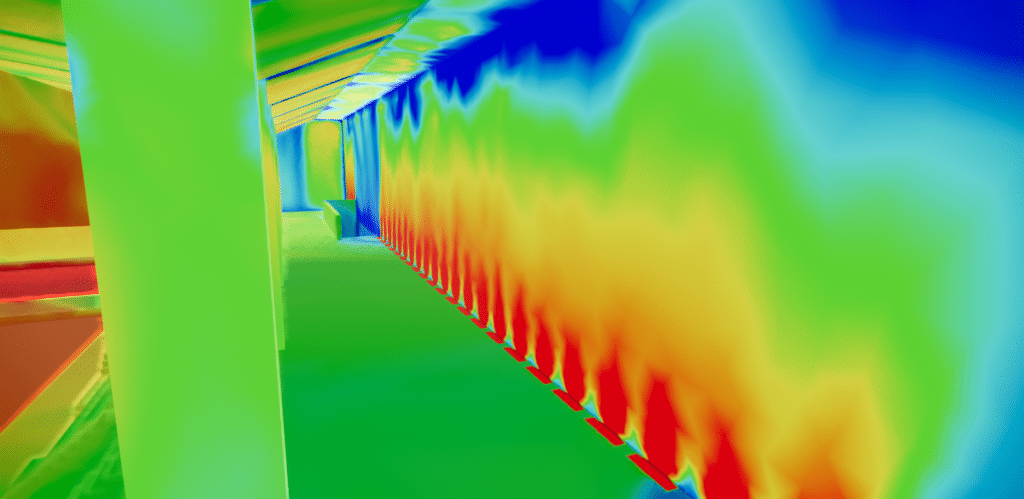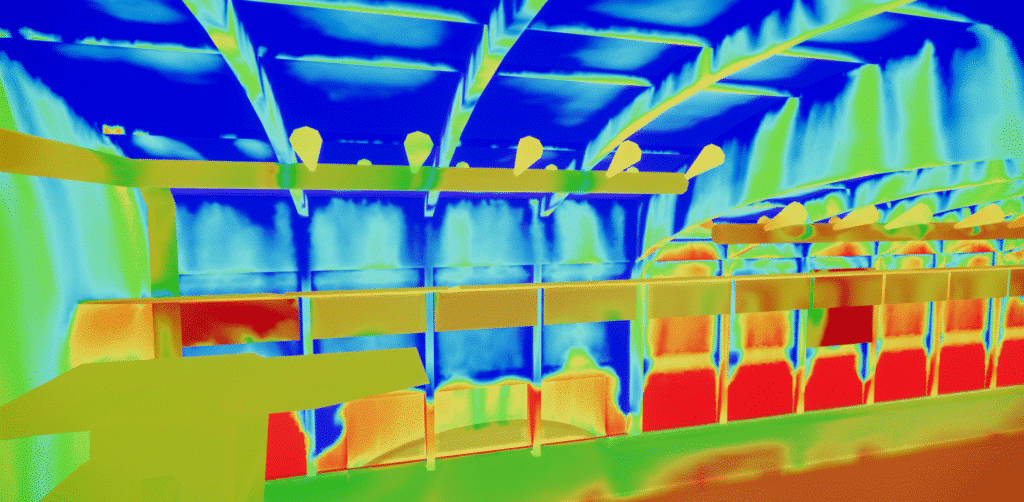Home » HVAC » Simulation of the aeraulics of swimming pools » Swimming pool – Montreuil
Swimming pool – Montreuil
Study of aeraulic phenomena and condensation in a swimming pool
This study is carried out for pool areas. The CFD model includes the air volumes of the tank hall and the walls in contact with the outside.
Swimming pool - Montreuil
Year
2023
Customer
NC
Location
France
Typology
Air conditioning
Continue navigation :
Our other projects :
Latest news :
Latest news :
Study of air diffusion in a swimming pool being renovated
Condensation in swimming pools is a natural phenomenon that occurs when warm, moist air comes into contact with a cold surface. When moisture combines with warm air, it cools, causing a drop in temperature that leads to the formation of condensation. The walls and surfaces of swimming pools are generally cooler than the ambient air, allowing them to cool the humid air and cause condensation.
This space is characterized by a warm, humid environment (around 27°C-28°C and 60-65%RH), with water evaporation and condensation phenomena influencing heat transfer and occupant comfort.
Creation of a digital study model
Our experienced EOLIOS engineers carried out an on-site audit before carrying out a CFD study of the entire building, to highlight the various problems encountered on the site.
3D modeling of the existing
CFD modeling of real air diffusion systems
The first CFD simulations of the external aeraulics have highlighted different interesting phenomena that could allow the increase of the wind potential. By restricting the cross-section of wind flow to the rear of the building, a Venturi effect is created, resulting in a local increase in wind speed.
Following this study, Eolios was able to propose different designs that respected the various architectural challenges. These findings led to in-depth work with the design teams, to accentuate and exploit this local increase in speed.
Blowing principle in the pool hall
The pool’s air temperature is controlled by the HVAC (heating, ventilation and air conditioning) system.
Flow distribution is carried out in accordance with the HVAC DOE, which identifies each individual supply air point and associates it with a diffusion flow rate.
In our study, we assume that the blast nozzles have been balanced. In this case, the flow rate is set individually for each supply nozzle, and air transfer ducts are not included in the model (except to take account of the air mask inside the air volume).
Precise integration of broadcast systems
Most of the air is blown in via floor grilles along the curtain walls. All existing supply points are maintained and integrated into the CFD study model.
Air distribution via supply grilles along curtain walls
Most of the air is blown in via floor grilles along the curtain walls. All existing blowing points are maintained and integrated into the CFD study model . Complex to understand, it represents air movements throughout the dock hall.
This current-tube distribution shows how the air movesfrom the diffusion grilles on the facades.
Blowing principle in the pool hall
Study of average air age
In our various studies, EOLIOS engineers have put together different scenarios to guarantee and promote different solutions to meet the customer’s needs.
In this study extract, we have integrated a total additional diffusion of 20,000 m3/h, i.e. two diffusing ducts under roofs (10,000 m3/h each).
This extract will deal with the example with the addition of directional nozzles.
Study of average air age
The average age of the air is the characteristic average time spent by the air in the volume under consideration between the moment it is blown in by the diffusion systems and the moment it is extracted by the air extraction systems.
Surface condensation analysis
Convective wall exchanges are linked to surface air velocity, which drives thermal exchanges. In fact, the surface temperature of a wall with air circulation will be closer to the temperature inside the room than a wall with very little circulation in the dead zone, whose temperature will tend towards the outside temperature.
For both facades, an air mantle heats the glazing surface along the wall, which is linked to diffusion via air banks to treat the facade directly.
The diffusion system appears to be dimensioned to combat the effects of cold walls and the appearance of condensation on facades. However, in winter conditions, at temperatures of <5°C, traces of condensation may appear in the roof area. In the case of facades, for example, diffusion ensures that a man-height fascia is always effectively treated at -7°C outside.
The engineers deduced that the areas most prone to condensation are those where the surface layer is poorly stirred in contact with a poorly insulated wall. Generally, these zones appear behind air masks (beams, posts, studs, etc.). At -7°C outside, the roof reveals large areas of condensation.
Continue on this topic
Video summary of the study
Discover other projects
Protected: Controlling comfort under a glass roof: CFD simulation of an atrium
Heating/Cooling system design for a pharmaceutical plant
Aquatic Center – Haut de Seine
Prototype – Natural ventilation chimney
HVAC – Medical equipment warehouse
Sharaan by Jean Nouvel resort
Swimming pool – Montreuil
Thermal comfort study – trichloramine diffusion in a children’s pool
Plant – Wind turbine
Cold Room – Leipzig
Cold room – penetrant testing
Palais Omnisports de Paris-Bercy
Sizing of natural draft extractor hoods

